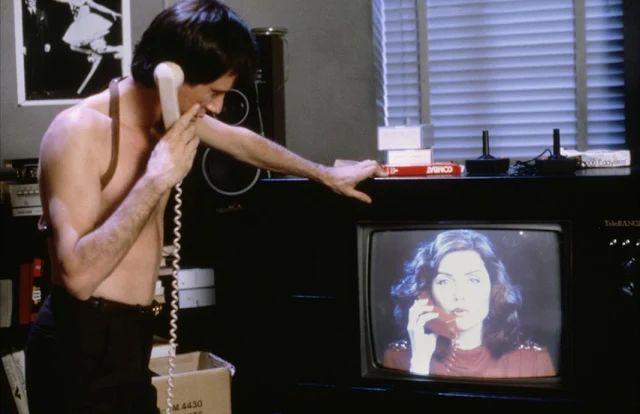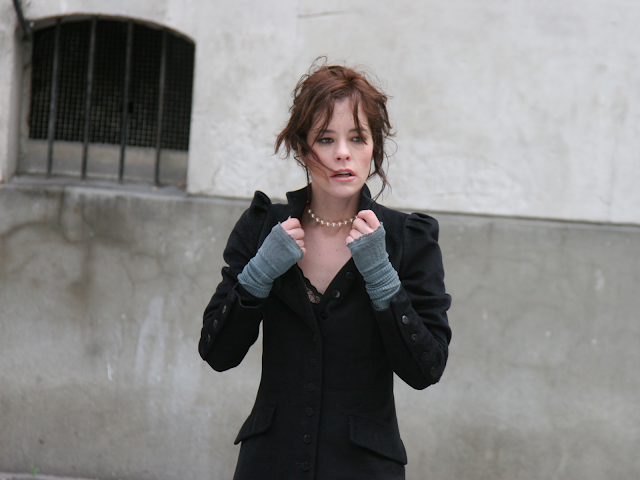 |
| Wendell B. Harris Jr. in Chameleon Street |
Cast: Wendell B. Harris Jr., Timothy Alvaro, William Ballenger, Thomas Bashaw, Alfred Bruce Bradley, Margaret Branch, Rick Davenport, Amina Fakir, Anita Gordon, Gary Irwin, Jeff Lamb, Angela Leslie, Bruce Seyburn, Jennifer Turner. Screenplay: Wendell B. Harris Jr. Cinematography: Daniel S. Noga. Art direction: Timothy Alvaro. Film editing: Matthew Mallinson. Music: Peter S. Moore.
An altogether astonishing movie, Wendell B. Harris Jr.'s Chameleon Street is raw, clumsy, funny, mordant, and almost as interesting for what happened to the movie itself as for anything that happens on the screen. It was born of its writer-producer-director-star's fascination with a real life con man, William Douglas Street Jr., who managed to pass himself off as a reporter, a doctor, a lawyer, an athlete, and a Yale student. Only once did Street try to make real money with this talent; the rest of the time he did it because he could, which ultimately wound up sending him to prison. Harris's exploration of Street's career is a kind of docudrama, and it won him the Grand Jury Prize at Sundance. What it didn't win him was fame as a filmmaker, which Sundance had done for directors like Quentin Tarantino, David O. Russell, Paul Thomas Anderson, and Steven Soderbergh, among others. Hollywood showed its interest only in buying the rights to remake the movie, but not to distribute it. At the Sundance festival, Chameleon Street's chief competitor for the award was To Sleep With Anger, a film by another Black director, Charles Burnett, that was picked up for distribution by the Samuel Goldwyn Company. It's a more conventional movie, featuring stars like Danny Glover, while Harris's film is largely performed by non-professional actors. After three decades of underground circulation, Chameleon Street was restored in 2021, distributed and released on video. It can now be seen as a pointed look at the Black experience and as a commentary on the quest for identity and status, not only within the film but in the film's history.








